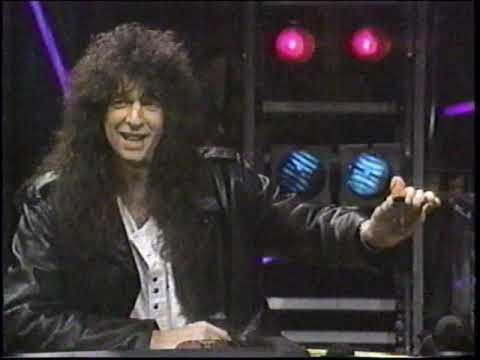Check out the latest Midnight Hostility Afterhours episode as Sam Namo looks at the suggestion that Howard Stern has completely sold out.
The Early Years: Howard Stern’s Radio Rebellion
Howard Stern’s ascent in the radio world was nothing short of revolutionary. Beginning his journey in the mid-1970s, Stern quickly established himself as a distinct voice in broadcasting. He diverged from the sanitized and often predictable formats that characterized mainstream radio at the time. His unique style, heavily laden with irreverence and edgy humor, cultivated a devoted audience while simultaneously courting controversy.
One of the hallmarks of Stern’s early years was his penchant for outrageous pranks and provocative sketches. Programs like “The Howard Stern Show” were not afraid to tread where few dared. They often delved into taboo subjects and pushed the boundaries of decency. This rebellious approach was not merely a gimmick; it represented a fundamental challenge to societal norms.
This awakening resonated with listeners who yearned for authenticity and unfiltered entertainment. Stern’s frank discussions and willingness to share his true opinions connected with a demographic that felt underserved by traditional media outlets.
Moreover, Stern’s style was characterized by a blend of humor and self-deprecation. This allowed him to connect authentically with his audience. His willingness to share personal stories, including his insecurities and failures, rendered him relatable to many listeners.
This approach broke down barriers and reshaped the listener-host relationship in a manner that would inspire countless future radio personalities.
As a result, Howard Stern’s early years marked a significant cultural shift in radio broadcasting. It heralded a new era where hosts could challenge the status quo and speak candidly. His rebellion against conventional programming not only garnered him notoriety but also solidified him as a pivotal figure in the evolution of radio.
Stern’s provocative bits laid the groundwork for a career defined by controversy and innovation, ultimately earning him a distinctive place in broadcasting history.
The Shift: How Howard Embraced a Different Narrative
Howard Stern’s transformation from a provocative radio personality to a polished media figure is marked by several crucial turning points in his career. These shifts influenced his public persona and mirrored broader cultural changes in the entertainment landscape.
One of the most significant moments was his transition to satellite radio in 2005. This move allowed him to escape the constraints of terrestrial radio, where he often faced censorship and restrictions.
By embracing the unfiltered freedom of satellite broadcasting, Stern expanded his creative boundaries. He attracted a diverse audience that was hungry for authentic, uncensored content. As he navigated this new platform, Stern became increasingly visible in Hollywood.
His involvement in various projects, such as talent judging roles on reality television shows, introduced him to a wider demographic. This newfound exposure facilitated a transformation in how audiences perceived him.
The impact of fame and fortune played a pivotal role in shaping Stern’s choices and beliefs during this period. With significant financial success came opportunities for introspection and re-evaluation of his past ideals.
Stern’s evolution seemed spurred by a desire to connect with a broader audience while maintaining authenticity. This balancing act reflected a compromise of his earlier rebelliousness.
The Hollywood Factor: Apologies and Influences
Howard Stern’s evolution within the entertainment industry has been marked by a complex relationship with Hollywood and its influential figures. As his career progressed, he transitioned from a provocative radio personality known for his unfiltered commentary to a more polished figure navigating the intricate corridors of Tinseltown.
This shift did not come without criticism. Many view his apologies for past content as a sign of capitulation to industry standards he once openly challenged.
In recent years, Stern’s political views have also transformed, aligning more closely with leftist ideologies. This realignment has led some of his audience to question his authenticity, especially as he engages in conversations about social issues and personal accountability.
His communications with celebrities have further intertwined his public persona with contemporary cultural values, creating a multifaceted image that some praise as growth and others deride as a ‘sellout.’
Stern’s interactions with Hollywood figures illustrate this dynamic. While he previously might have mocked or critiqued these personalities, he now participates in a more collaborative manner.
This blending of styles represents a significant change in his approach. Critics evaluate whether Stern’s evolution is indeed a betrayal of his roots or a necessary step towards broadening his audience.
Public Perception: Fans, Critics, and the Dichotomy of Change
Howard Stern’s journey from a controversial radio provocateur to a Hollywood insider has reshaped public perception in ways that reflect broader societal shifts. Initially celebrated for his brash approach and candid discussions, Stern attracted a dedicated fan base drawn to his unfiltered and provocative style.
However, this same approach became a double-edged sword, inviting criticism and scrutiny from those who deemed his antics offensive or inappropriate.
The rise of cancel culture has profoundly impacted public figures like Stern. Many fans continue to appreciate his candidness and ability to push boundaries. They often portray him as a cultural icon who fearlessly addresses complex topics.
Conversely, critics argue that his past transgressions warrant repercussions that should not be overlooked simply because he has transitioned into a more refined persona.
As Howard Stern has toned down his controversial behavior in favor of a more polished and reflective style, public sentiment remains mixed. Some supporters see this transformation as a natural evolution, appreciating the growth displayed by Stern.
Others perceive this shift as a dilution of the authenticity that initially captivated his audience. This dichotomy raises questions about the expectations placed on public figures.
